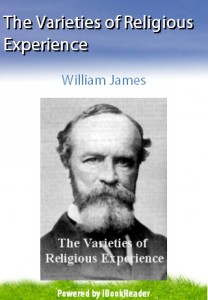 [I]f we look at man’s whole mental life as it exists, on the life of men that lies in them apart from their learning and science, and that they inwardly and privately allow, we have to confess that the part of it of which rationalism can give an account is relatively superficial. It is the part that has prestige for it can challenge you for proofs, and chop logic, and put you down with words. But it will fail to convince or convert you all the same, if your intuitions are opposed to its conclusions.
[I]f we look at man’s whole mental life as it exists, on the life of men that lies in them apart from their learning and science, and that they inwardly and privately allow, we have to confess that the part of it of which rationalism can give an account is relatively superficial. It is the part that has prestige for it can challenge you for proofs, and chop logic, and put you down with words. But it will fail to convince or convert you all the same, if your intuitions are opposed to its conclusions.
Intuitions come from a deeper level of our nature than where rationalism resides. This is our subconscious life, impulses, faith, needs, divination which forms the reality our consciousness recognizes as truer than any logic chopping rationalistic talk, however clever, that contradicts it. The truth is that in the metaphysical and religious sphere, articulate reasons make sense only when our inarticulate feelings of reality coincide with our subconscious intuition.
William James, The Varieties Of Religious Experience (1902)(edited by PAT).
Post Footer automatically generated by Add Post Footer Plugin for wordpress.

 Religion, whatever it is, is a person’s total reaction upon life, so why not say that any total reaction upon life is a religion? Total reactions are different from causal reactions, and total attitudes are different from usual or professional attitudes. To get at them we must go behind the foreground of existence and reach down to that curious sense of the whole residual cosmos as an everlasting presence, intimate or alien, terrible or amusing, lovable or odious, which in some degree we all possess.
Religion, whatever it is, is a person’s total reaction upon life, so why not say that any total reaction upon life is a religion? Total reactions are different from causal reactions, and total attitudes are different from usual or professional attitudes. To get at them we must go behind the foreground of existence and reach down to that curious sense of the whole residual cosmos as an everlasting presence, intimate or alien, terrible or amusing, lovable or odious, which in some degree we all possess. At the onset we are struck by one great partition that divides the religious field. On one side of it lies institutional, on the other personal religion. Worship and sacrifice…theology and ceremony… are the essentials of religion in the institutional branch. [Here religion is] an external art, the art of winning the favor of the gods.
At the onset we are struck by one great partition that divides the religious field. On one side of it lies institutional, on the other personal religion. Worship and sacrifice…theology and ceremony… are the essentials of religion in the institutional branch. [Here religion is] an external art, the art of winning the favor of the gods. 